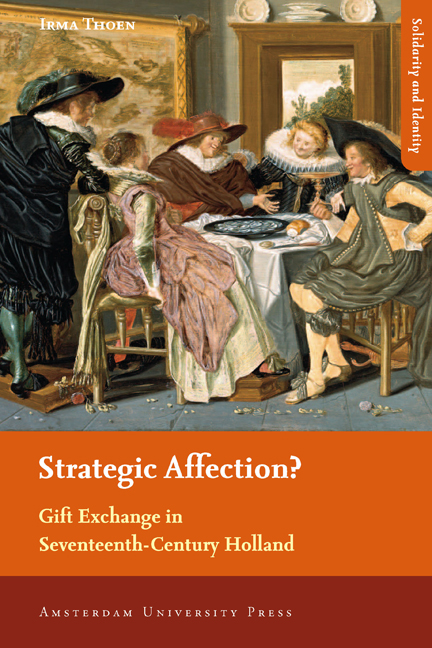Part III - Terms and Conditions of Exchange
Published online by Cambridge University Press: 14 January 2021
Summary
Gifts in relationships
In the first chapter, it was made clear that gift exchange took place within several different types of social networks. Gifts were exchanged within the family, between friends, and also with people who someone would be in contact with for professional reasons. There are some general patterns that can be ascertained for these different networks: The family played a more important role in life's important events and were therewith more likely to receive material objects, friends received hospitality on a day-to-day basis and during calendar feasts, and the gifts that professional contacts received depended on their profession. Nevertheless, the way gifts were dealt with within these different relationships obviously depended on the individual relationships. In this chapter, a number of these individual relationships are discussed. By looking closely at these relationships it becomes clear how gift exchange functioned within certain relationships and what the terms and conditions were under which gifts were exchanged between certain individuals. Furthermore, this close reading shows what the conventional discourse was for seventeenth-century individuals whilst dealing with the exchange of gifts.
Brotherly Exchange
Herman and Pieter Verbeeck
One example of a relationship in which the offering of gifts played an important role is that of Herman and Pieter Verbeeck. According to the Herman Verbeeck's autobiography, these two brothers could not get along at all. They argued and fought constantly. As far as Herman was concerned, it was all Pieter's fault while he was just the poor victim of these terrible situations, or at least that is the impression that Herman leaves in his autobiography.
The negative feelings between these two brothers as it is described in the autobiography were partly the result of the generally pessimistic view of life that prevails in Verbeeck's writings. The egodocument can be characterised as a strikingly negative account of the strikingly unfortunate life of a strikingly grumpy man. This is a matter of discourse more than anything else: Verbeeck chose to represent himself in this way. His autobiography uses the Book of Job metaphor as a means of showing that he carried life's burden with Christian devotion. Yet this writing strategy also helps position him as a victim of life's unfortunate incidents, as opposed to his brother who was always lucky in life.
- Type
- Chapter
- Information
- Strategic Affection?Gift Exchange in Seventeenth-Century Holland, pp. 151 - 196Publisher: Amsterdam University PressPrint publication year: 2006



